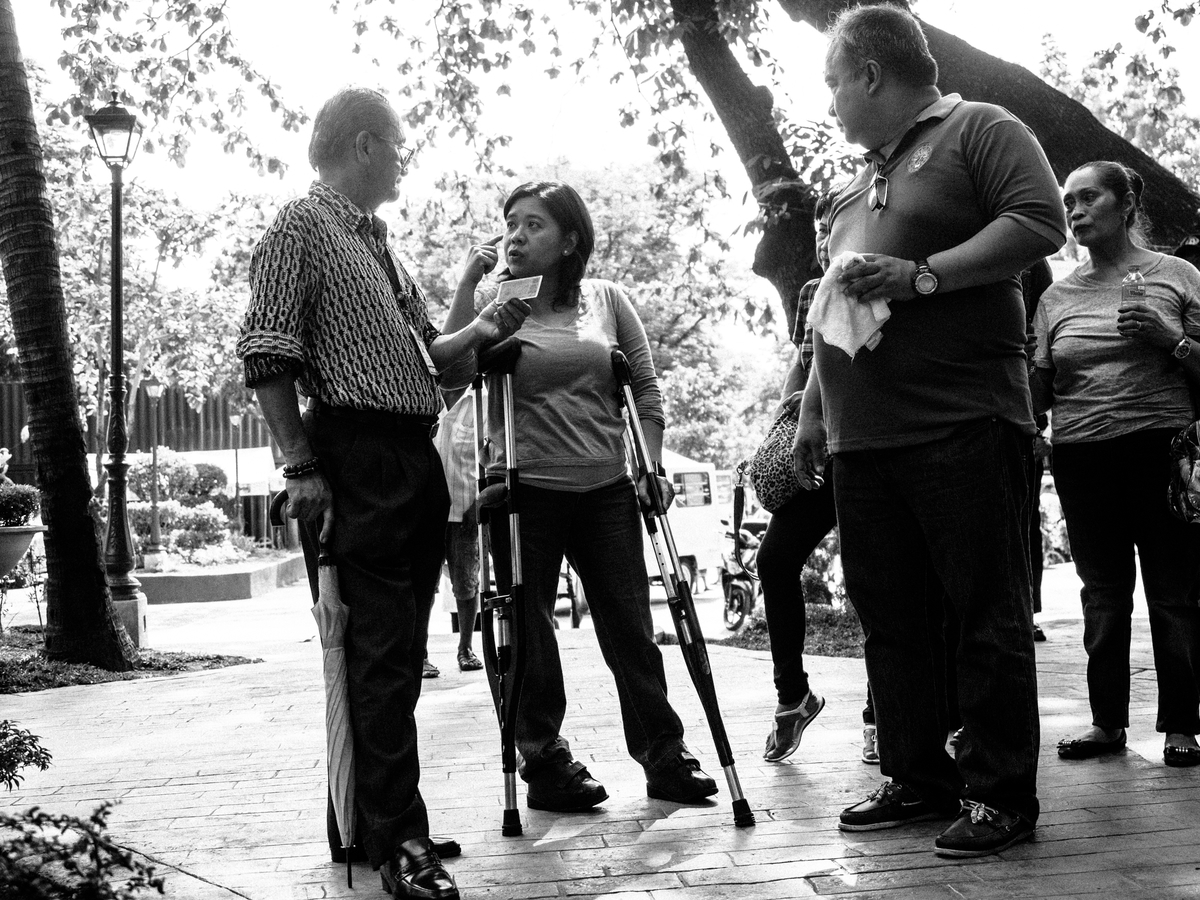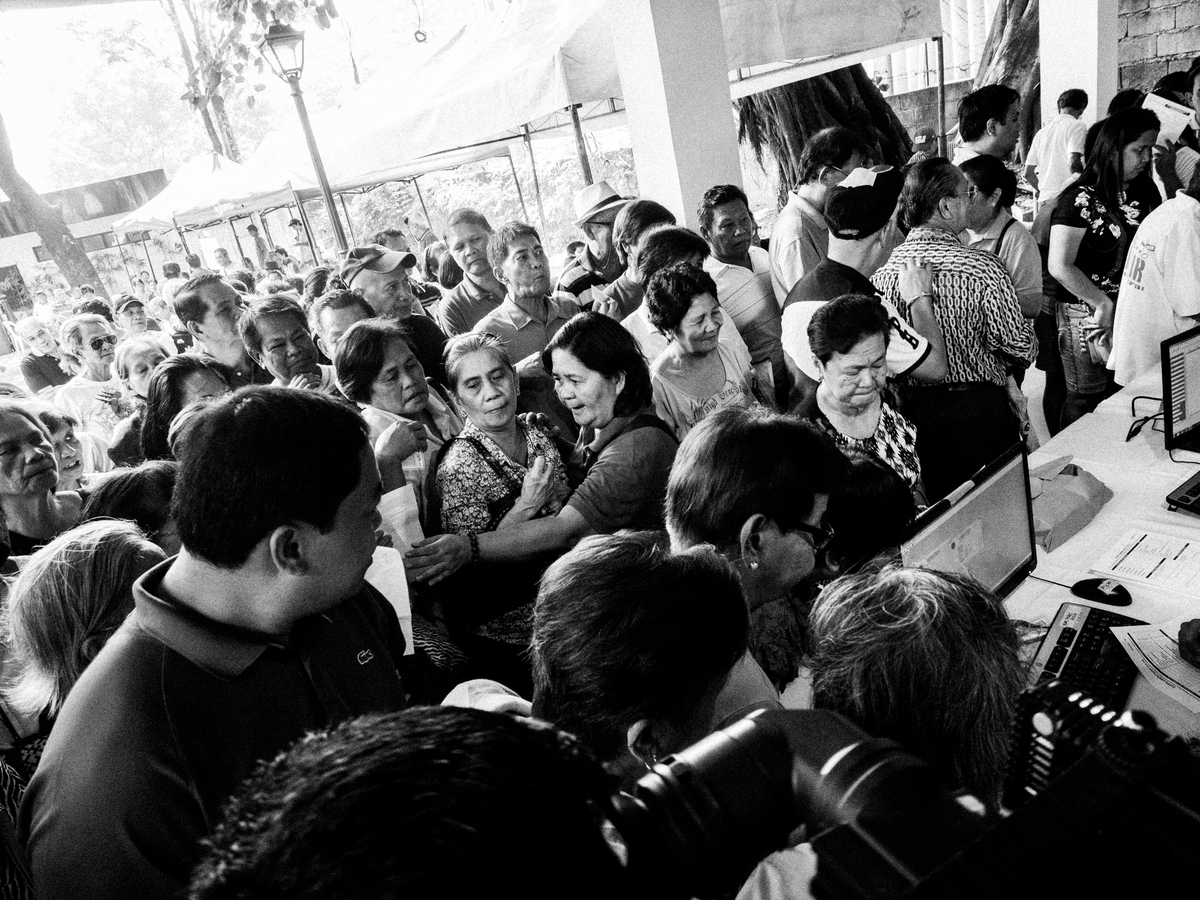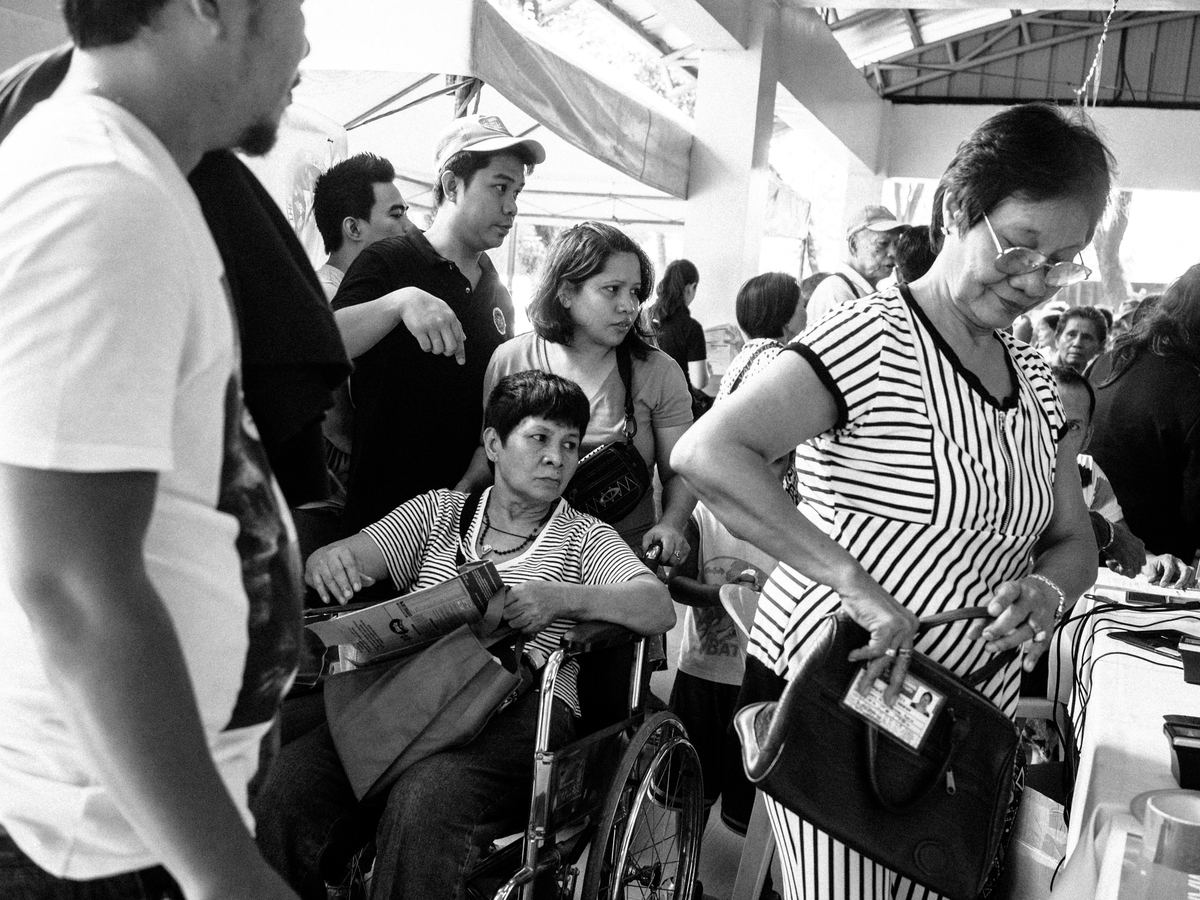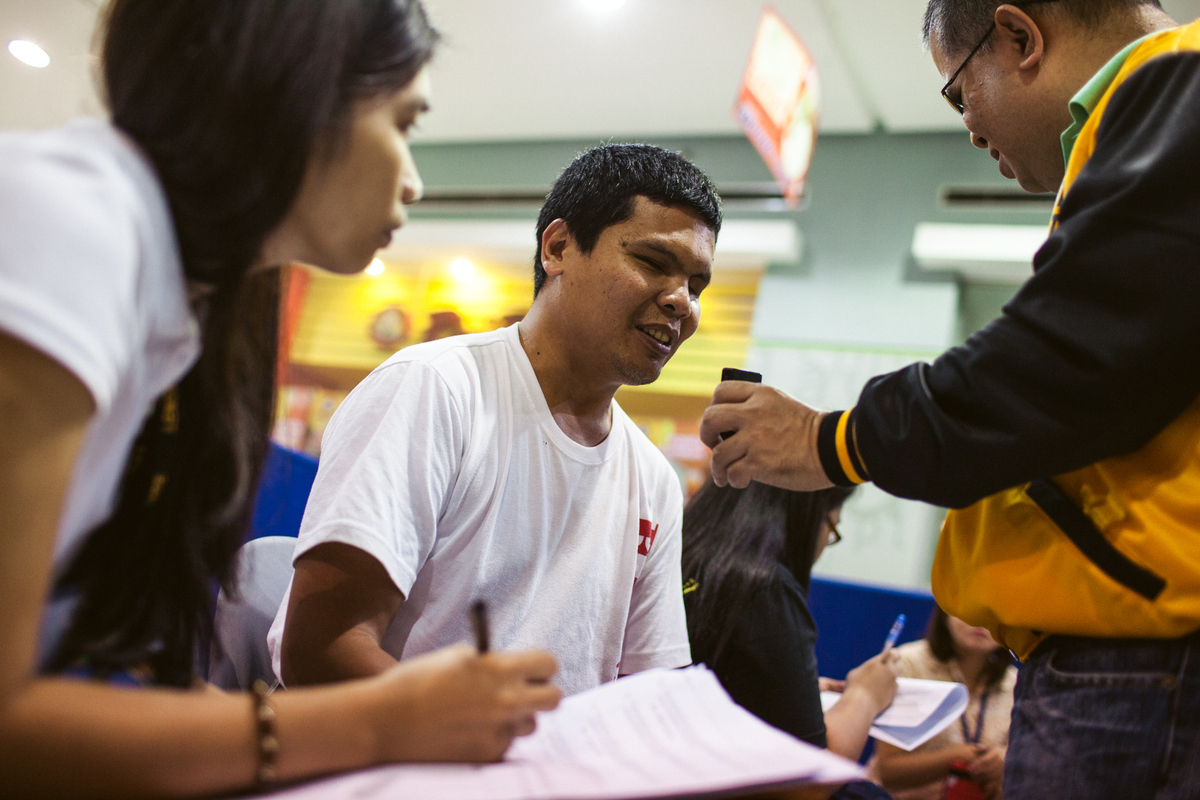
By JANE DASAL
NEARLY 450 persons with disabilities (PWDs) and senior citizens participated in a special registration in Manila on Sunday, but voters said the number could have been higher had information been properly disseminated.
Held at the Central Section of Rizal Park, the Commission on Elections set up the satellite registration for new and old voters who would like to register, validate or update their registration and biometrics for the 2016 elections.
A total of 439 PWDs and senior citizens, 80 of whom were new voters, showed up. Manila has more than 79,000 PWDs registered since 2011.
Under the rules, if a voter who with no or incomplete biometrics fails to validate or undergo biometrics capture before Oct. 15, 2015, his or her earlier registration will be invalidated and he or she won’t be allowed to vote in the next elections.
Some of the voters who showed up in Sunday’s listup complained they had not been informed of the purpose and process of the registration.
“There was a memorandum from the barangay instructing all the senior citizens to come to the registration. They did not explain why we have to come even though we already have our voter’s ID. When we went to the desk, they said that our biometrics is complete and that we can go home after registering our names,” Mamerto Yamat, 78, said.
His wife, Carmelita, 79, said, “If they said what this is for, then we would have found out if we needed to come and could have saved ourselves the time and the hassle. Most of us here already have a difficulty traveling outside our homes because of sickness.”
The registration also allows Comelec, through the use of supplementary forms, to identify the type of disability a voter has and the type of assistance he or she would need come election day. But many of the voters, confused with the process, chose to go home.
“It was only last night that I was informed by the Manila Department of Social Welfare. They said I could already get my voter’s ID here, but the officers here told me to give only my supplementary data to update my records,” Samuel Magallones, a 47-year-old PWD who uses a wheelchair, said.

Some of the voters also said they were not given proper directions to the exact location of the registration.
“The information drive of the government is not enough. The lack of communication and inaccessibility of satellite registrations, especially for PWDs, sometimes discourage us to participate in these activities because of the difficulty it brings us,” said Arthuro Quiroz, president of Samahang Kapatiran ng may Kapansanan Para sa Hanapbuhay.
But Comelec Education and Information Department Officer Leo said Comelec made sure the voters knew about the satellite registration.
“We explained the purpose of the registration to our partner organizations such as the Office of Senior Citizens Affairs and PWD organizations. Their district officers were assigned to disseminate the information (in their communities),” he said.
Comelec, Lim said, is identifying other areas where Comelec can conduct a satellite registration for PWDs and senior citizens.
A special registration was held in Pampanga on Thursday.
Implementing the law
Comelec Commissioner Grace Padaca said all senior citizens and PWDs must register to update their records even though they already have biometrics.
“They have to give us an update of their data in line with the implementation of our new law, Republic Act 10366. They need to fill out supplementary data forms where they shall indicate what their disability is and the kind of assistance they will need during the voting period,” she said.
The law authorizes the Comelec to assign accessible polling places (APPs) in precincts exclusively for PWDs and senior citizens based on the state policy ensuring “that persons with disabilities and senior citizens are able to exercise their right to political participation without discrimination or restrictions.”
Padaca said the information from the registration, particularly from the supplementary forms, will make polling places more accessible.

“Because of the law, the PWDs and the senior citizens have the option of voting in an accessible polling places placed on ground floors of the voting centers. If they agree, they are allowing us to pull their names from their original precincts and place them on the precincts to be used as APPs. That way they would not have to come up the stairs,” Padaca said.
She said the forms will also allow Comelec to deploy sign language interpreters in precincts and assign personnel to assist the PWDs. In the 2013 elections, not one SLI was deployed in schools that needed assistance for voters with hearing impairment.
While the law mandates the creation of accessible polling places, Lim said not all polling centers have been compliant.
“Normally, we issue a general order instructing the election officers to set up APPs. Sometimes, they have difficulty setting up because we do not own the polling centers which are usually public schools,” Lim said.
In the 2013 mid-term elections, Comelec was able to deploy only two accessible polling places in Cavite. In the barangay elections, it designated SM malls in four cities, including Manila, as APP pilot centers. In many of the schools in both elections, voters with disabilities had to climb up the stairs to vote.


